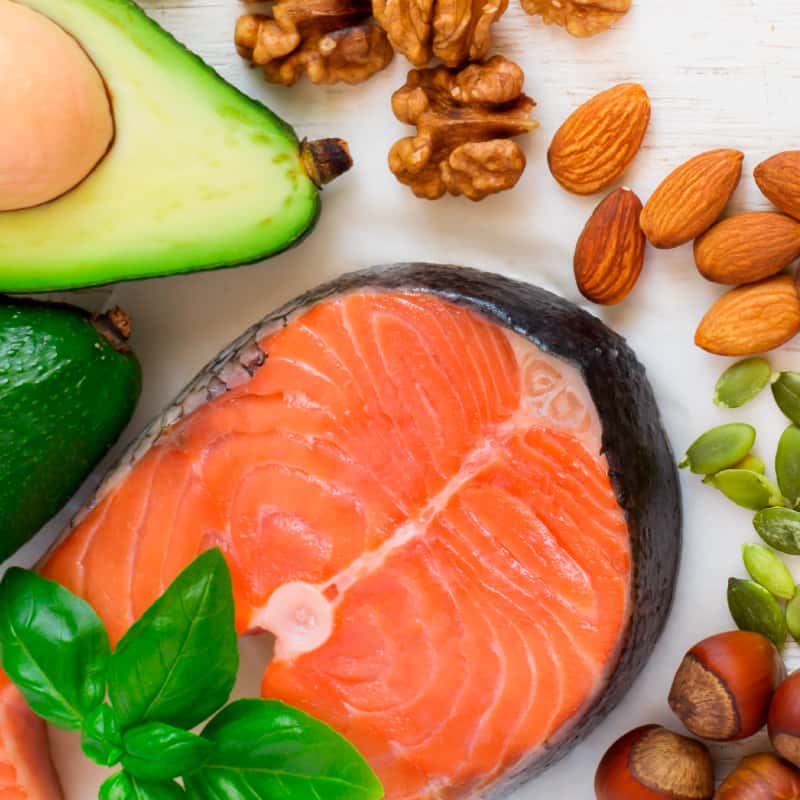This Dr. Axe content is medically reviewed or fact checked to ensure factually accurate information.
With strict editorial sourcing guidelines, we only link to academic research institutions, reputable media sites and, when research is available, medically peer-reviewed studies. Note that the numbers in parentheses (1, 2, etc.) are clickable links to these studies.
The information in our articles is NOT intended to replace a one-on-one relationship with a qualified health care professional and is not intended as medical advice.
This article is based on scientific evidence, written by experts and fact checked by our trained editorial staff. Note that the numbers in parentheses (1, 2, etc.) are clickable links to medically peer-reviewed studies.
Our team includes licensed nutritionists and dietitians, certified health education specialists, as well as certified strength and conditioning specialists, personal trainers and corrective exercise specialists. Our team aims to be not only thorough with its research, but also objective and unbiased.
The information in our articles is NOT intended to replace a one-on-one relationship with a qualified health care professional and is not intended as medical advice.
9 Reasons You’re Not Losing Weight on Keto
February 25, 2019

Many people start the keto diet for weight loss, expecting the pounds to slide right off almost instantly. But when you suddenly hit a plateau and the scale doesn’t seem to budge anymore, it can be incredibly frustrating and make keto diet weight loss seem nearly impossible. However, making just a few quick fixes to your daily routine can help boost fat burning to get you back on track.
Here are a few factors that you may want to consider for ensuring keto diet weight loss success, plus how much weight loss on the keto diet that you should expect.
9 Reasons Why You’re Not Losing Weight On Keto
1. You’re Eating Too Many Carbs
Cutting carbs is a vital component of a keto diet plan for weight loss. Decreasing carb intake helps your body reach ketosis, which is a metabolic state in which your body burns fat for fuel instead of carbs. Aim for around 30–50 grams of net carbs per day in order to maintain a state of ketosis and maximize potential keto diet weight loss.
To calculate net carbs, simply subtract the total grams of fiber from the total grams of carbs in your foods. High-fiber keto foods like certain veggies are great choices to help keep carb consumption low while squeezing in plenty of vitamins and minerals to support better health.
2. Your Protein Intake Is Too High
Just as important as slashing carb consumption for keto diet weight loss is moderating your protein intake. In fact, overdoing it on the protein can cause your body to start converting protein into glucose, kicking you out of ketosis and stalling progress.
Ideally, about 20 percent of your daily calories should come from high-quality protein foods such as meat, poultry, seafood or eggs.
3. You’re Eating Too Much
Eating too many calories can hinder weight loss on any diet, including the ketogenic diet. If you’re constantly snacking on high-fat, high-calorie snacks between meals, there’s a good chance it could take a toll on your potential keto diet weight loss.
High-calorie snacks like nuts, nut butters, seeds and avocado may be on the keto diet food list and can be enjoyed in moderation, but should be paired with other low-calorie options such as raw vegetables with dip, hard-boiled eggs or a handful of raspberries to keep the calories from stacking up.
4. You’re Not Eating Enough
Although cutting back on calories is key to weight loss, decreasing your calorie consumption too much can actually bring weight loss to a screeching halt. When you severely restrict calories, your body enters starvation mode and begins conserving calories, causing your metabolism to quickly slow down. This can make weight loss nearly impossible while also depleting your body of the essential nutrients that it needs to function and thrive.
Instead, be sure to fill your plate with nutrient-rich whole foods to maximize your keto diet weight loss results.
5. You Haven’t Reached Ketosis
It can be tricky to reach ketosis when you’re first getting started on the ketogenic diet. Many people often believe that they have reached ketosis but become frustrated when they aren’t getting the results they expect. One easy way to determine if your body is in ketosis is to test for ketones in the breath, urine or blood, which are byproducts of fatty acid breakdown that indicate you’ve entered a state of ketosis.
If you haven’t reached ketosis, then it may be time to decrease carb consumption a bit more by limiting your total intake to just 30–50 grams of net carbs per day. Alternatively, try adding a few spoonfuls of MCT oil into your daily routine to boost fat intake and kickstart ketosis.
6. You’re Not Getting Enough Sleep
In addition to following a keto diet menu plan for weight loss, many different factors can play a central role in weight loss, including your sleep schedule. Research shows that sleep deprivation can increase levels of ghrelin, the hormone responsible for stimulating feelings of hunger.
According to one study published in Obesity, getting at least seven hours of sleep was able to increase the likelihood of weight loss success by 33 percent in women. For best results, set a regular sleep schedule and try to squeeze in at least 7–9 hours each night to decrease hunger and optimize weight loss.
7. You Aren’t Exercising
One of the best ways to maximize keto diet weight loss is to incorporate regular physical activity into your daily routine. Not only does exercise burn calories and build muscle to support weight loss, but it also helps lengthen the lifespan and reduce the risk of many chronic conditions.
It’s usually recommended to do at least 20–40 minutes per day of cardio, which translates to about 150–300 minutes weekly. Activities like running, swimming, walking or biking are easy and effective ways to boost fat burning and overall health.
8. You Have Unrealistic Expectations
Many people get started on the ketogenic diet and expect the pounds to drop off instantly. However, while you can expect to lose weight on the ketogenic diet, you should make sure you have realistic expectations when getting started.
So how fast can you lose weight on keto? The average weight loss on keto diet can vary, and weight typically tends to drop off quicker during the first few weeks. Although the amount of keto diet weight loss per week can vary based on a number of different factors, losing 1–2 pounds per week is a realistic and healthy goal for sustainable, long-lasting success.
9. You Have An Underlying Medical Issue
If you’re pairing a good assortment of keto diet foods for weight loss with regular physical activity and still not seeing results, there may be other factors at play that could be preventing you from losing weight.
Hypothyroidism, for example, can plummet thyroid hormone production, causing weight gain. Polycystic ovary syndrome (PCOS), insulin resistance and depression can also all contribute to weight gain over time.
If you suspect there may be other issues, it’s best to talk with your doctor and find the best course of treatment for you.









